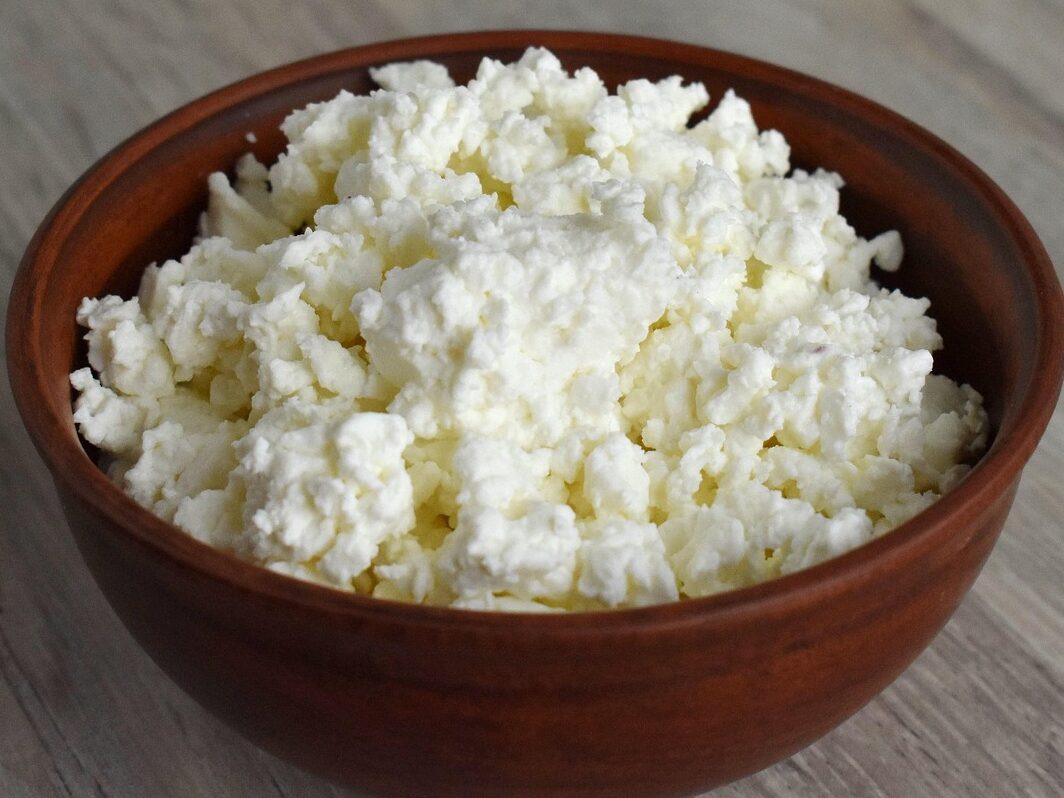
You don’t need meat to load up on protein. Plenty of delicious, filling foods offer just as much protein without involving chicken, beef, or pork. Whether you’re cutting back on meat or just want more variety, these options give you the fuel you need with flavors you’ll actually enjoy. Here are 15 high-protein foods that prove you don’t need meat to stay strong and satisfied.
Greek Yogurt
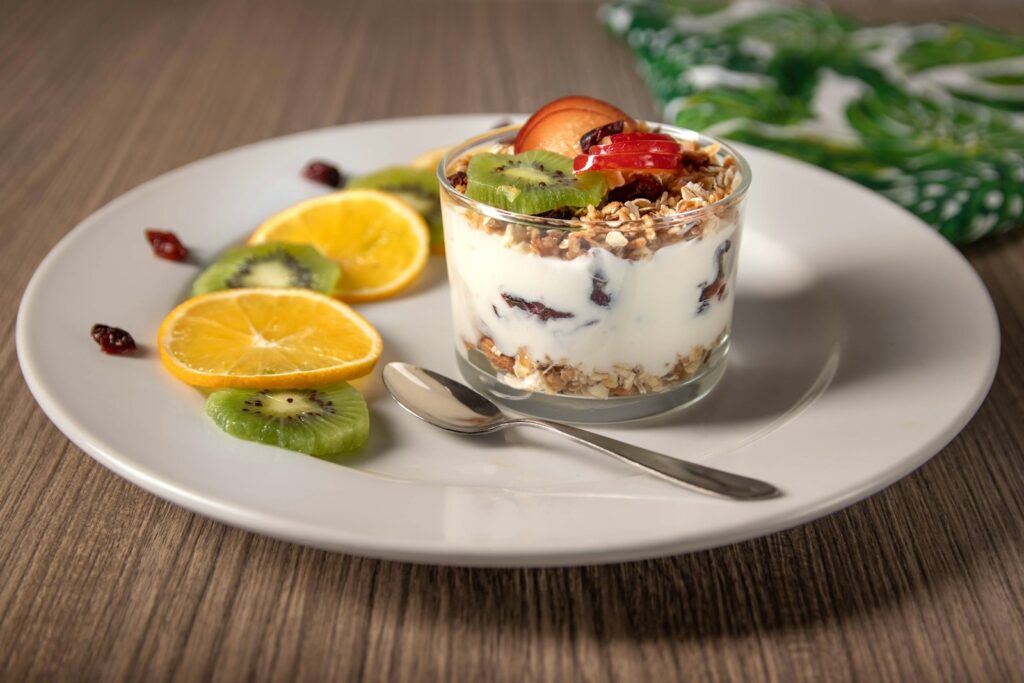
Greek yogurt gives you an easy way to get more protein without cooking anything. A single cup packs around 15 to 20 grams of protein, and it fills you up better than regular yogurt. You can eat it plain, top it with fruit and nuts, or even mix it into sauces and dips. It also works great in smoothies, adding creaminess while boosting your protein.
Lentils
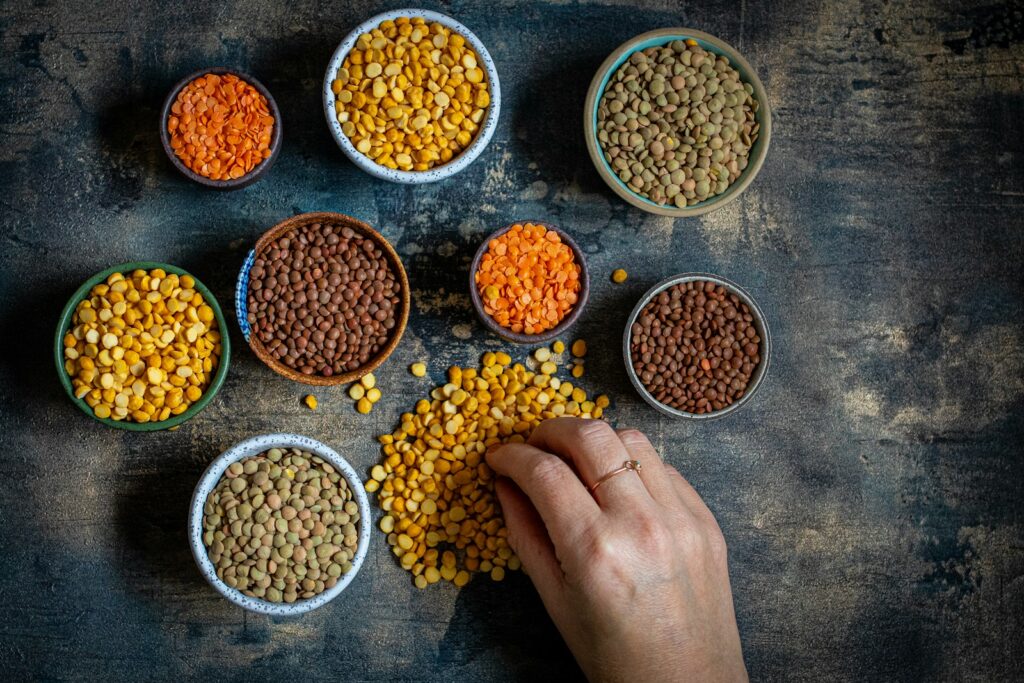
Lentils give you a hearty, meat-free way to add protein to your meals. One cup of cooked lentils gives about 18 grams of protein, plus loads of fiber to help you stay full longer. You can stir them into soups, toss them into salads, or season them for a warm side dish. Their earthy flavor makes them a very comforting option that fits into almost any meal.
Cottage Cheese
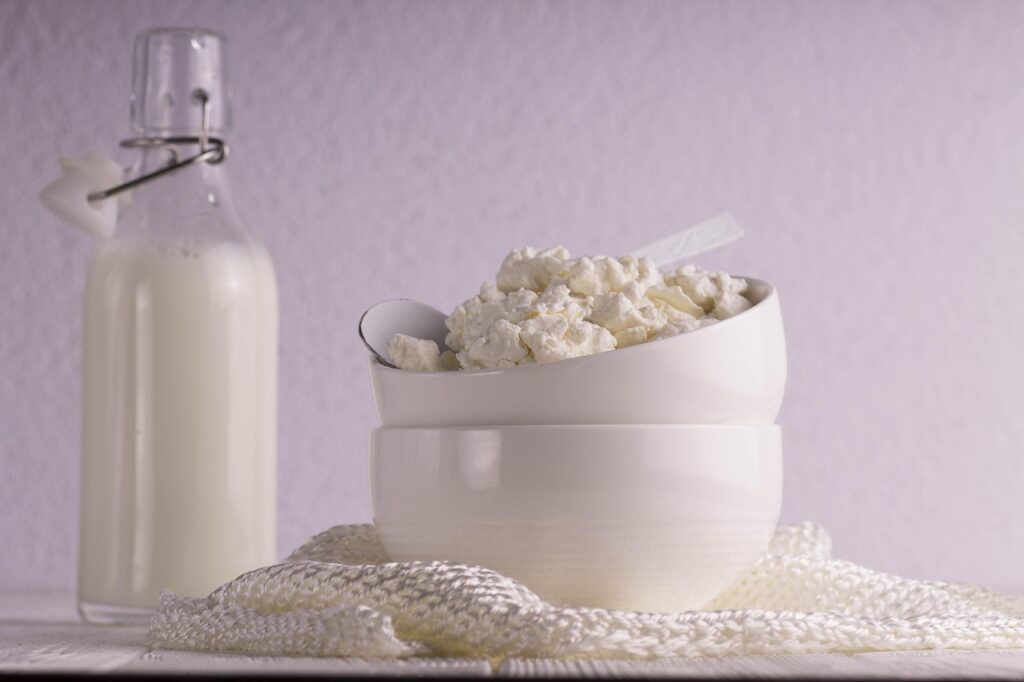
Cottage cheese offers over 25 grams of protein per cup, making it one of the highest-protein dairy foods out there. You can eat it sweet with fruit and cinnamon or go savory with pepper, tomatoes, or herbs. It also blends easily into recipes like scrambled eggs or pancake batter for an extra boost. It keeps you full and satisfied, whether you have it as a snack or part of a meal.
Chickpeas
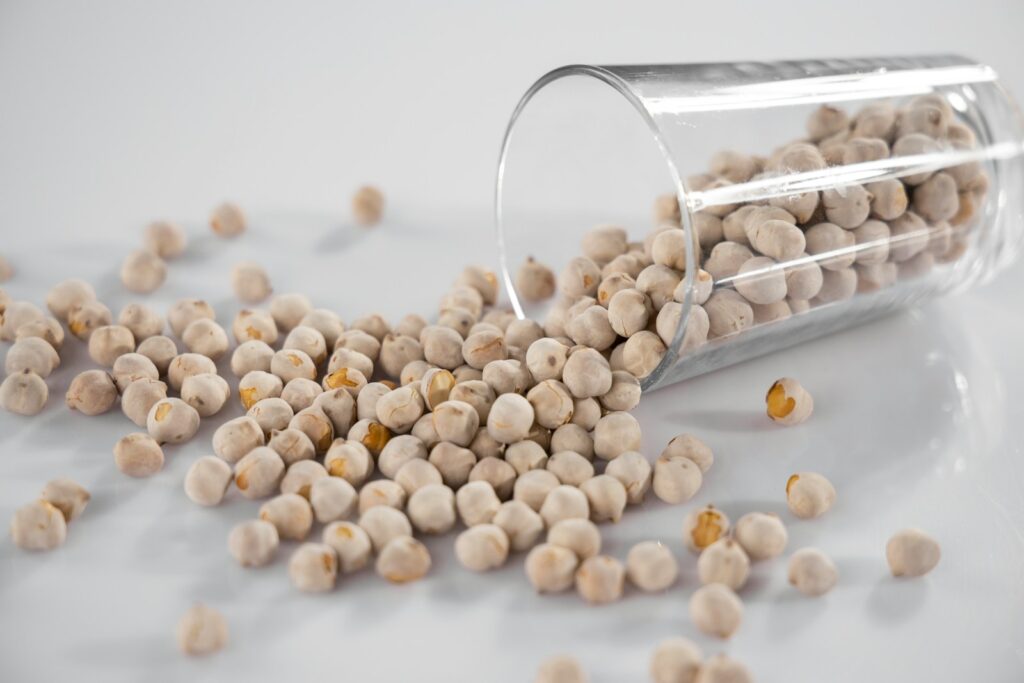
Chickpeas give you about 15 grams of protein per cooked cup and work well in everything from salads to stews. You can roast them if you like a crunchy snack, blend them into hummus, or toss them into wraps and bowls. Their nutty flavor and texture make them easy to enjoy in many dishes. They also provide fiber, which helps keep your energy steady between meals.
Quinoa
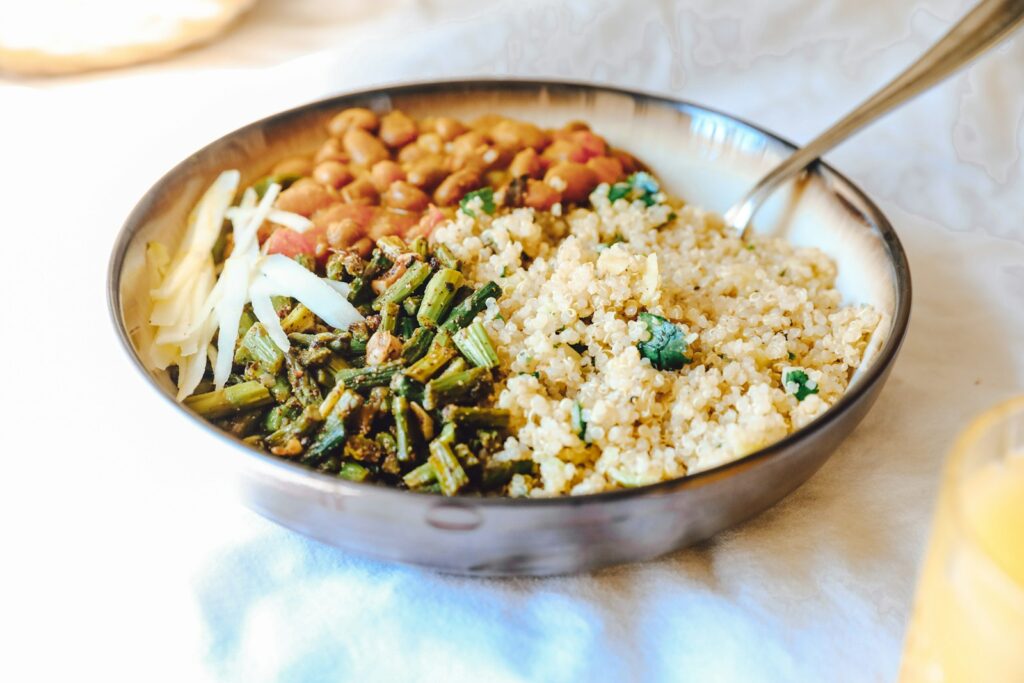
Quinoa acts like a grain but gives you more protein than most plant-based options—about 8 grams per cooked cup. It also have all nine essential amino acids, which makes it a complete protein. You can use quinoa as a base for veggie bowls, stir it into salads, or serve it warm with roasted vegetables of your choice. It’s light, fluffy, and has a slightly nutty taste that pairs well with almost anything.
Eggs
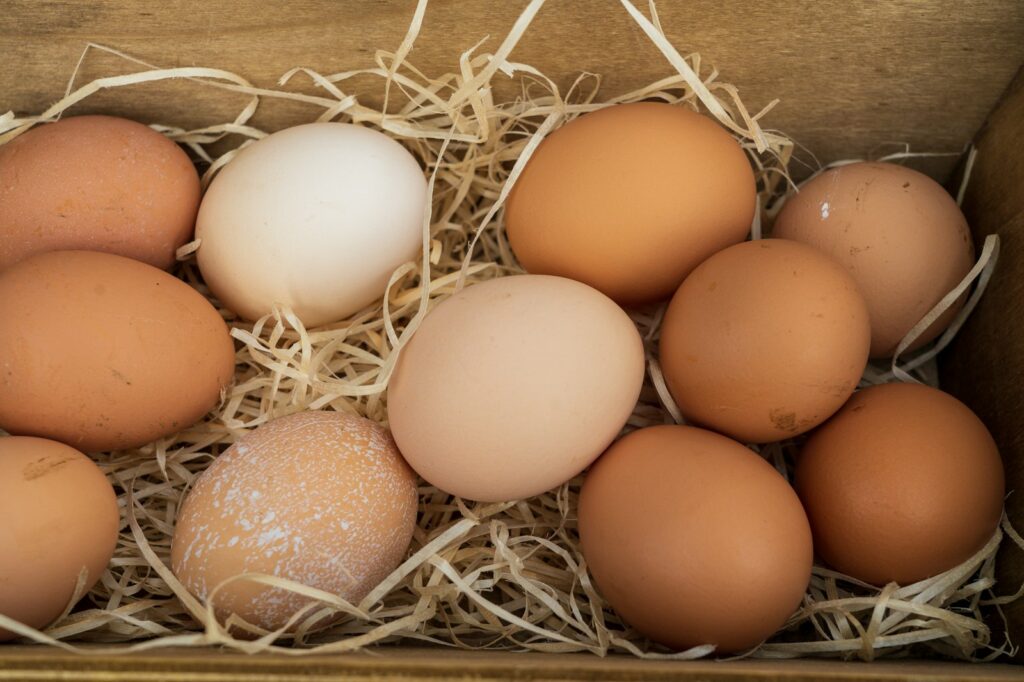
Eggs deliver about 5-6 grams of protein each, and they’re one of the easiest high-protein foods you can make. You can boil, scramble, or poach them in just a few minutes. They fit into any meal as you can add them to breakfast or slice them over salads and bowls. If you need something quick and filling, keeping a few hard-boiled eggs in the fridge always helps.
Tofu
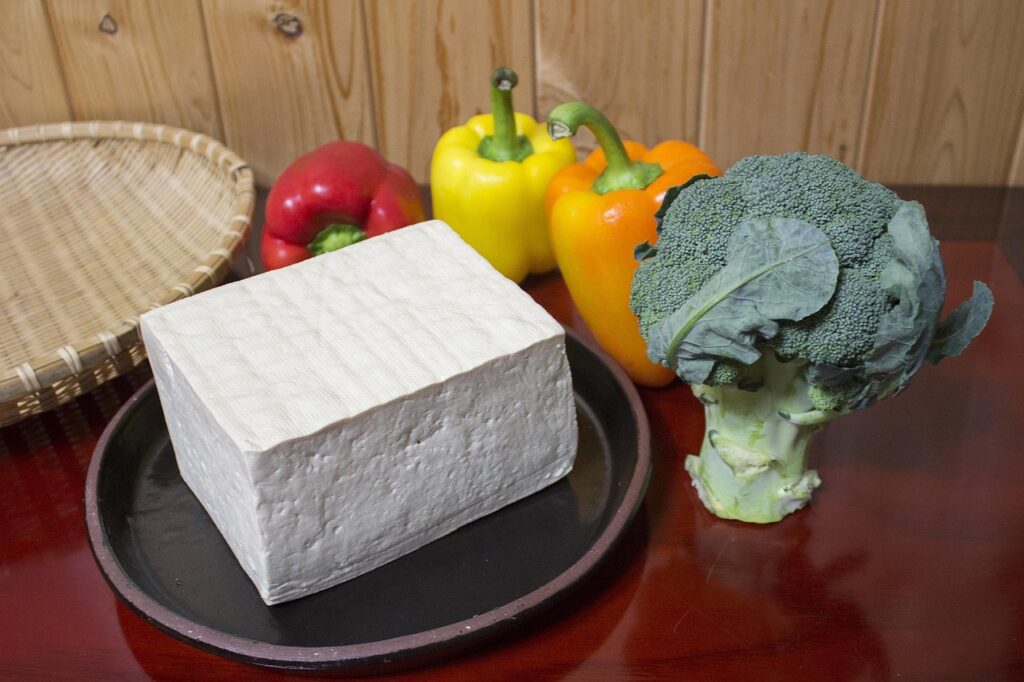
Tofu gives you around 10 grams of protein per half-cup and takes on the flavor of whatever you cook it with. Press it to remove moisture, then pan-fry it until golden and crispy. You can add tofu to soups, stir-fries, or wraps for a satisfying meat substitute. Its mild flavor and soft texture make it a blank canvas for seasonings, sauces, and marinades.
Edamame
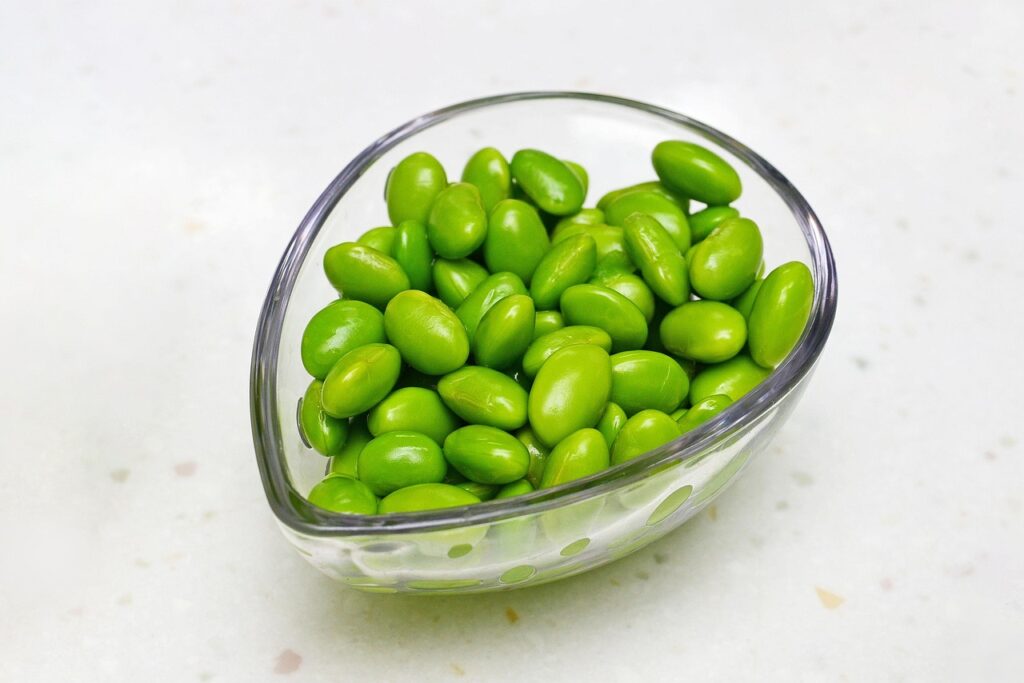
Edamame, or young soybeans, gives you a fun, snackable way to get protein—about 17 grams per cup when cooked. You can steam them in the shell and sprinkle with salt, or add shelled edamame to salads, rice bowls, and stir-fries. They’re slightly sweet, firm, and packed with fiber. Whether as a quick appetizer or a plant-based protein source in meals, edamame fits right in.
Tempeh
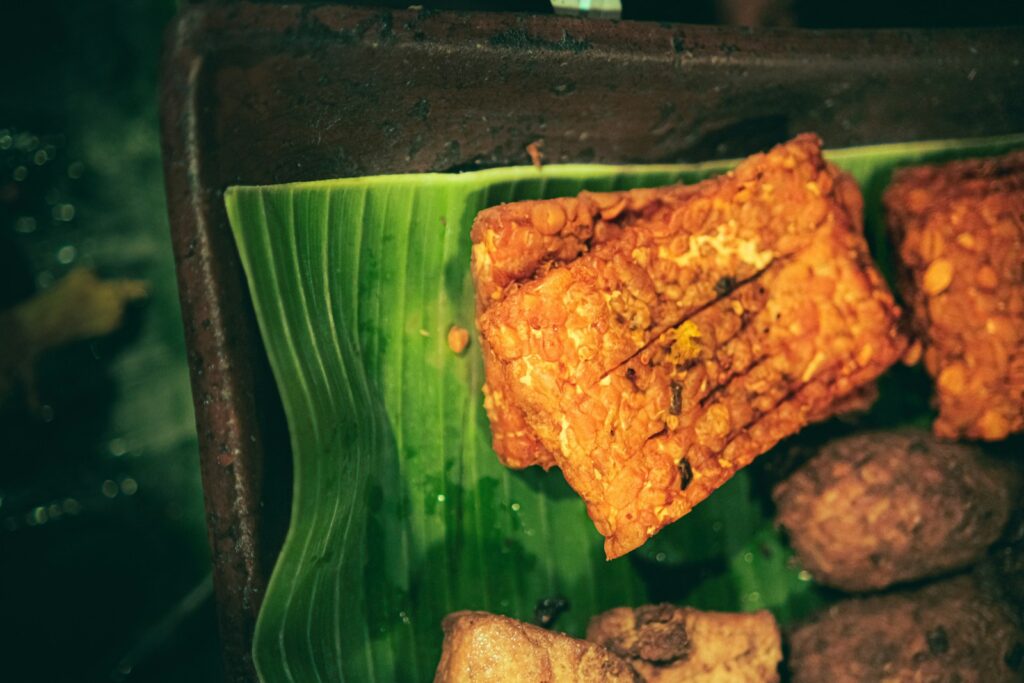
Tempeh gives about 15 grams of protein in just half a cup and brings a rich flavor that tofu doesn’t offer. Made from fermented soybeans, it holds its shape well and goes perfectly in stir-fries, sandwiches, or skewers. You can slice and sauté it, marinate it, or crumble it into sauces. The firm texture makes it feel satisfying and hearty, even without any meat on the plate.
Peanut Butter
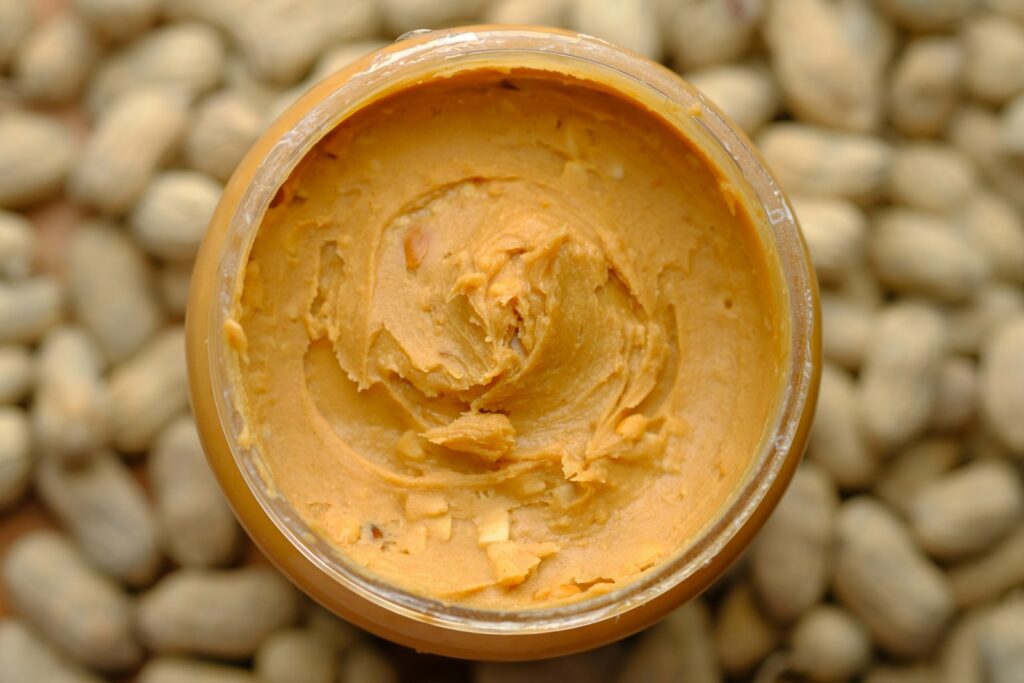
Peanut butter offers about 8-9 grams of protein per two tablespoons and gives you a satisfying, creamy bite every time. You can spread it on toast with any fruit or nut, blend it into smoothies, or mix it into sauces for noodles or stir-fry. It also goes well with apples for a quick and high-protein snack. Watch the label as some versions sneak in added sugar or oils you don’t need.
Black Beans
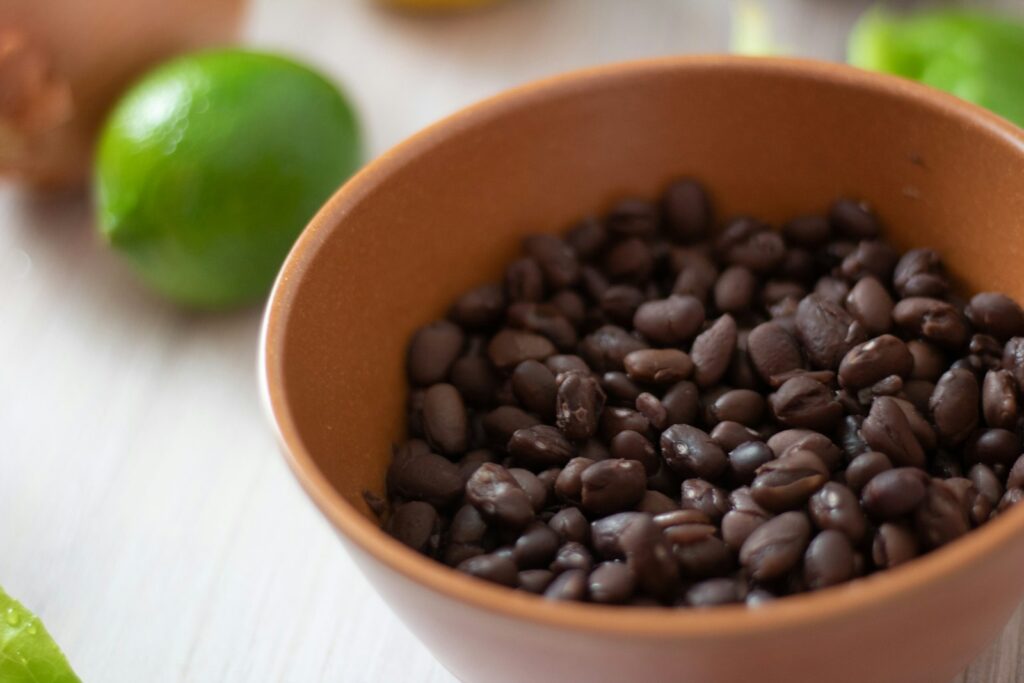
Black beans offer about 15 grams of protein per cup and taste great in both hot and cold meals. You can mash them into veggie burgers, spoon them over rice, or add them to tacos and burritos. Their deep flavor and creamy texture hold up well in chili and stews too. They also bring in fiber, iron, and other nutrients that make them more than just a protein source.
Chia Seeds
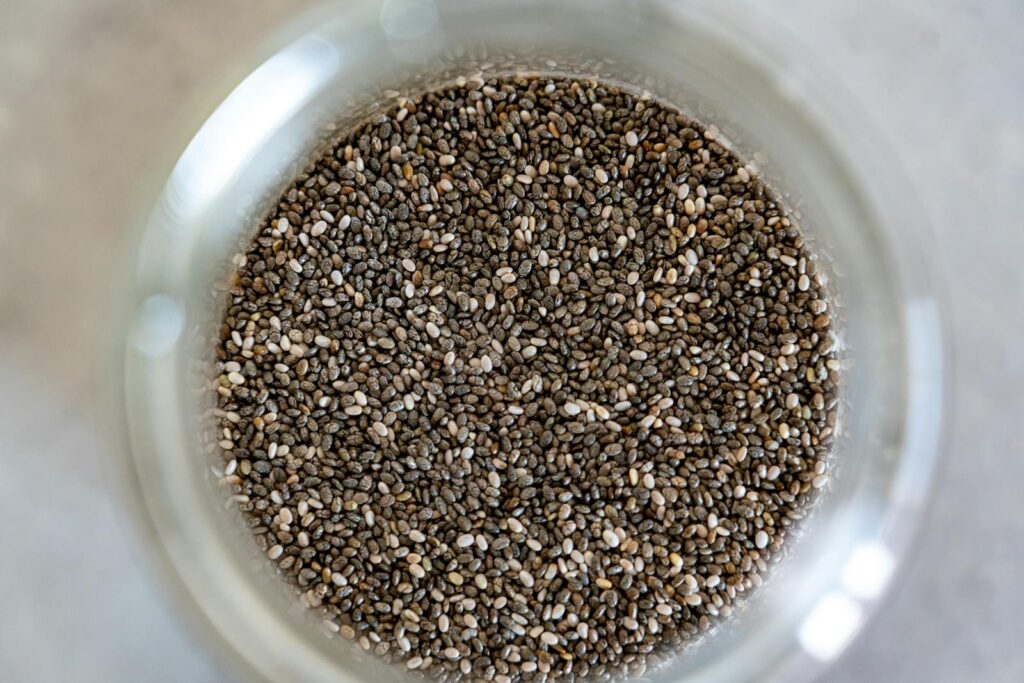
Chia seeds might be tiny, but they bring in 5 grams of protein per two tablespoons. When you soak them, they puff up into a gel-like texture you can turn into pudding or mix into yogurt. You can also toss them into smoothies, oats, or baked goods. Chia seeds also offer fiber and omega-3s, making them a smart way to boost nutrition without changing your meal too much.
Hemp Seeds
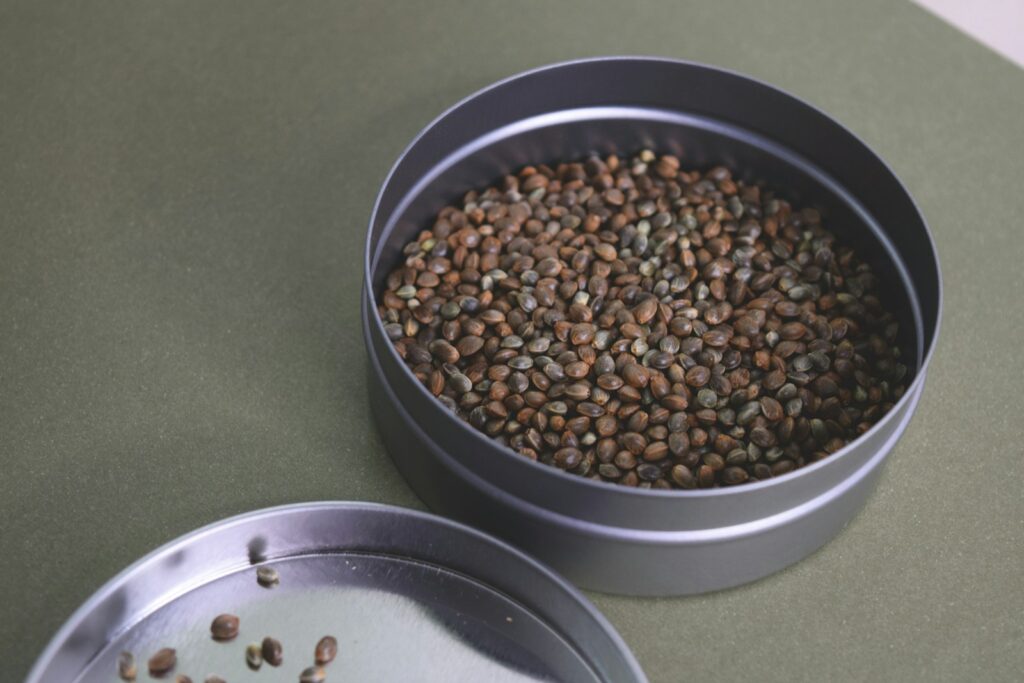
Hemp seeds give you nearly 10 grams of protein in just three tablespoons and taste mild and nutty. You can add them to salads, yogurt, or toast for extra texture and nutrition. They also work well in smoothies, energy balls, and baked snacks. Unlike many seeds, they contain all nine essential amino acids, making them a complete protein you can easily add to everyday meals.
Seitan
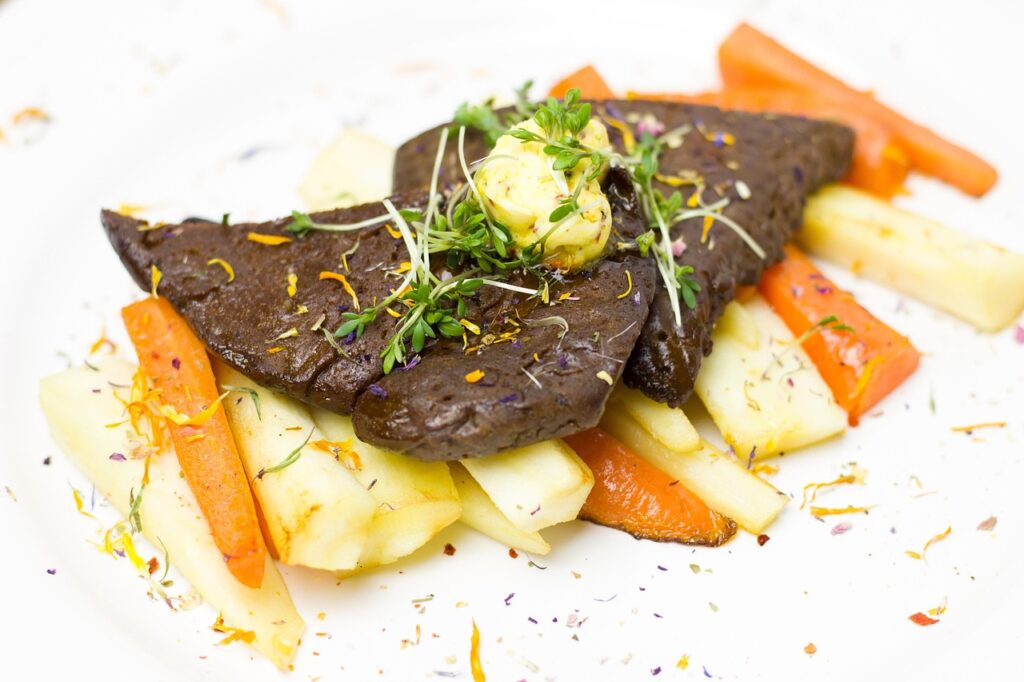
Seitan (made from wheat gluten) delivers up to 21 grams of protein in just a 3-ounce serving. It looks and tastes more like meat than most plant-based options, and it soaks up marinades well. You can slice it into stir-fries, grill it on skewers, or toss it into wraps and rice bowls. Its chewy texture and high protein content make it a go-to for many vegetarians and vegans.
Nutritional Yeast
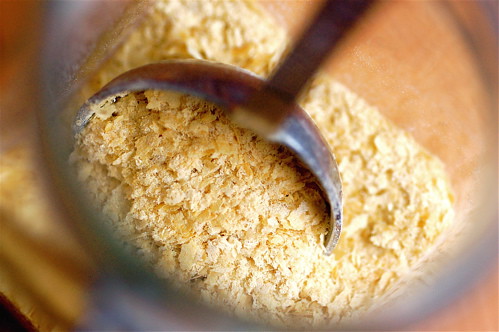
It gives you about 8 grams of protein per two tablespoons and adds a cheesy, savory flavor without any dairy. You can put it on popcorn, stir it into mashed potatoes, or mix it into sauces for a creamy finish. It’s also a good source of B-vitamins, especially B12. This flaky yellow ingredient brings flavor, protein, and nutrients to your meals without much effort.

